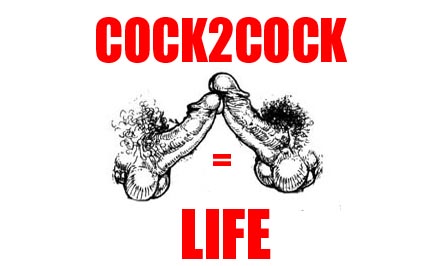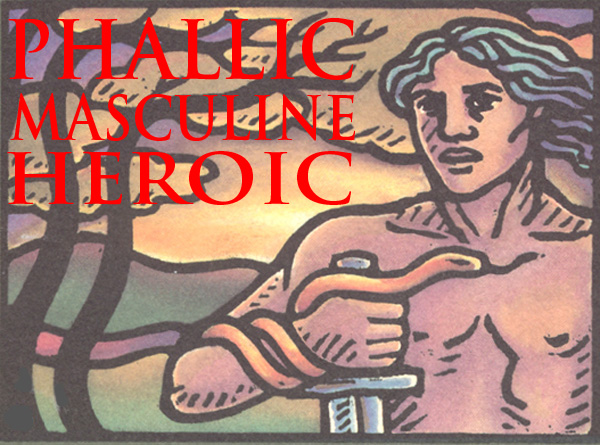




Condoms over Alabama, or, Mayor Stir Fries Con






Condoms over Alabama, or, Mayor Stir Fries Con

Condoms over Alabama, or, Mayor Stir Fries Con
12-11-2006
Back in the 1980s, when Brett and I lived in NYC, the mayor, Ed Koch, frequently voiced his support for the death penalty -- which was politically very popular.
Why was it popular?
Because there was a great deal of crime in NYC at the time.
And people wanted their politicians to be "tough on crime."
So the major was vocal, as they say, in his endorsement of the death penalty.
And he was also vocal about his love of Chinese food -- which was also popular.
Indeed, it was not unusual for hizzoner to be photographed and/or interviewed going into, eating in, or leaving a Chinese restaurant, where he'd very likely have held forth on the importance of capital punishment in reducing crime and satisfying the public's need for justice.
He did this so often and so predictably and so completely to the exclusion of other solutions to crime and the other problems facing New York City, that, finally, an utterly exasperated columnist for one of the alternative weeklies suggested that the mayor combine his passions by having constructed a gigantic electrified wok.
And using it to execute a prisoner, carrying out the execution himself.
In which case, said the columnist, the headline in the NY Post would read, "Mayor Stir Fries Con."
I had cause to think about that a few weeks back when I came across an article in the New York Times in which that paper had, improbably, managed to combine two of its great passions: condoms and globalization.
I wouldn't have thought that was possible -- I mean condoms are one thing and globalization another.
But sure enough, the Times figured out a way to do it.
It turns out, you see, that there's a condom manufacturing plant in Alabama.
It's not a huge plant, but it does provide low-wage employment for some local people.
Not a big deal you might say.
Except that those wages, as low as they are, can't compete with even lower wages paid by condom manufacturers in Asia.
So the Alabama congressional delegation, in an attempt to save those relatively few jobs in Alabama, has over the years pressured -- strong-armed some might say -- USAID -- the government agency which buys and distributes condoms overseas for the US government -- into agreeing to purchase Alabama condoms first -- before it buys any Asian condoms.
Why would that bother the New York Times?
The United States government, the world’s largest donor of condoms, has bought more than nine billion condoms over the past two decades. Under President Bush’s global AIDS plan, which dedicates billions of dollars to fight the epidemic, a third of the money for prevention must go to promoting abstinence. But that leaves two-thirds for other programs, so the federal government’s distribution of condoms has risen, to over 400 million a year.
Over the years, Usaid [sic] could have afforded even more condoms -- among the most effective methods for slowing the spread of AIDS -- if it had it [sic] bought them from the lowest bidders on the world market, as have the United Nations Population Fund and many other donors.
There's the answer.
It bothers the Times because it cuts down on the total number of condoms -- a number which as you can see is already astronomical -- which USAID can buy and distribute.
And since the NY Times' solution to all things HIV is the condom -- to the Times this is a problem.
In addition, of course, the actions of the Alabama delegation are, in terms of trade, protectionist.
And the Times is against that too.
The Times supports globalization.
Which means that if workers in Asia can churn out those condoms more cheaply than workers in Alabama -- those hapless Alabamians will just have to be out of jobs.
Now, far be it from me to argue the pros and cons of globalization.
Thomas Friedman, a Times "Select" columnist -- the "Select" means you have to pay money to read him -- thinks globalization is great.
"The World is Flat," he's declared, and we must all adjust to this new reality which will ultimately -- ultimately is the key word here -- make us all happier and of course RICHER.
Is Mr. Friedman right?
I don't know.
I know more than a few people who've lost jobs to globalization and who are for the moment as a consequence neither happy nor rich;
and I know that globalization has its critics.
For example, the Nobel laureate Muhammad Yunus, who developed microcredit, an innovative means of making loans to poor people, warned just yesterday that
the globalized economy was becoming a dangerous "free-for-all highway."
"Its lanes will be taken over by the giant trucks from powerful economies," Yunus said during the lavish ceremony at which he was awarded the 2006 Nobel Peace Prize.
"Bangladeshi rickshaws will be thrown off the highway."
And who knows, Yunus may be right.
Or Friedman.
Or someone else.
Like I say, globalization is not my bailiwick.
Condoms, however, are a different matter.
And in that Times story we quoted above, the Times says something which is flat out wrong:
that condoms are "among the most effective methods for slowing the spread of AIDS."
That's not true.
Not even remotely.
Not in the real world.
In an ideal universe it might be true.
In an ideal universe, of course, men would use condoms consistently and correctly, condoms would destroy neither sensation nor intimacy, disinhibition would not be a problem because people would behave reasonably and responsibly at all times, and condoms themselves would be perfect, with no breakage and slippage.
But we don't live in an ideal universe, we live in the real world.
And in the real world, men do NOT use condoms either consistently or correctly.
They don't use condoms consistently because condoms destroy intimacy and sensation -- which are what most people want from sex.
And they don't use them correctly because sex is about passion, not logic, and in the heat of passion putting on a condom, which requires six separate and distinct steps, does not always follow the script.
And then there's disinhibition:
Having been told that condoms protect, men it turns out will have more sex, with more partners, be less choosy about those partners, and of course if they're "men who have sex with men," choose the most dangerous form of "sex": anal penetration.
Finally, condoms are not perfect -- they break and slip and otherwise allow bodily fluids and their viral loads to go where they're not wanted.
That's why condom campaigns have NEVER succeed in reducing HIV prevalence anywhere.
Not in the US of A or the UK or the EU or Australia, where a highly educated and affluent gay male elite has been the target of condom campaigns for more than 20 years, and where HIV infection rates keep rising;
not in sub Saharan Africa, where the countries most heavily targeted by condom campaigners are those with the highest rates of HIV prevalence;
and not in Thailand and other places where condom campaigns were directed primarily at prostitutes and their customers.
In all of these places, those who've remained free of HIV have done so not through condoms, but through more *primary* behavior change:
mainly partner reduction, and, in the case of men who have sex with men, avoiding anal penetration.
That's the TRUTH.
Far from being "among the most effective methods for slowing the spread of AIDS," condoms are among the LEAST effective methods for slowing the spread of AIDS.
LEAST effective.
And what is the Times' response to that fact?
Nevermind.
The Times is not interested.
In a sense, the Times' faith in condoms would be touching -- a bit like that of an adult who still believes in the tooth fairy -- if it weren't so deadly and so at odds with the plain facts.
Condoms are not effective.
And in that respect it matters not one whit whether they are purchased in Alabama or in Asia.
Cause they still won't work.
Why am I bringing this up?
Because, in the next week or so, I hope, I'm going to be discussing gender issues.
And gender too is now among the Times' great passions.
Condoms, globalization, gender.
Nowadays you can't swing a cat, metaphorically speaking, without hitting a Times' piece on gender:
guys who channel Judy, guys who want to be girls, drag queens in the Bronx, girls who want to be guys, cross-dressers in the 1950s, reassignment surgeries, the travails of the intersexed, and a trans-radical makeover of the NYC birth certificate -- these are just a few of the Times' articles in recent months on gender gender gender.
Because when the Times goes on a tear about something -- it really goes on a tear.
But that doesn't mean the Times is correct.
Actually, it's more likely to mean the opposite:
that the Times is biased in its reporting.
Because it has an editorial axe to grind.
Which takes us back to "Mayor Stir Fries Con."
As I said, the mayor was pushing the death penalty because of crime.
Was that a successful strategy to reduce crime?
No.
Despite his support for the death penalty, crime did not fall in NYC on Koch's watch.
Nor, to be fair, did it fall on that of his successor, David Dinkins -- who was as ardently opposed to the death penalty as Koch was in favor of it.
It was Rudolf Giuliani who finally got crime under control in NYC.
And he did it by approaching crime not ideologically, but pragmatically.
He identified and went after those relatively few people who were committing the bulk of the crime.
And he also went after the ubiquitous quality-of-life violators -- the graffiti artists and the like.
Because, he argued, the failure to punish them had created an atmosphere in which the commission of crime was perceived as risk-free.
Giuliani, it turned out, was right.
He succeeded.
Is there a lesson?
In my view, yes.
Koch's support of the death penalty was ideological.
And politically expedient.
As is the Times' support of condoms, globalization, and -- hey -- gender.
But HIV -- just to take the condom component -- isn't interested in ideologies or what goes over well at AIDS conferences.
Given the opportunity, HIV will spread.
What's needed are pragmatic policies which look at HOW HIV spreads, and intervene appropriately.
Such as telling MSM not to do anal.
Those who support ideological solutions may well prosper.
Ed Koch did, and the NY Times does to this day.
But that doesn't mean they're right.
Koch himself, who spent his career pretending that he wasn't homosexual -- in those days the death penalty was politically popular, homosexuality wasn't -- fancied himself a populist, and after leaving office, got a gig on The People's Court.
A TV show where he could continue to pose as a hard-headed no-nonsense friend of law and order.
But "People's Court" -- curiously -- was what the Nazis called the special tribunals they put together to ferret out treason.
Koch didn't get it.
Let's hope that someday the New York Times does.
Bill Weintraub

© All material Copyright 2006 by Bill Weintraub. All rights reserved.
Add a reply to this discussion
Back to Personal Stories






AND


Warriors Speak is presented by The Man2Man Alliance, an organization of men into Frot
To learn more about Frot, ck out What's Hot About Frot
Or visit our FAQs page.


© All material on this site Copyright 2001 - 2010 by Bill Weintraub. All rights reserved.


